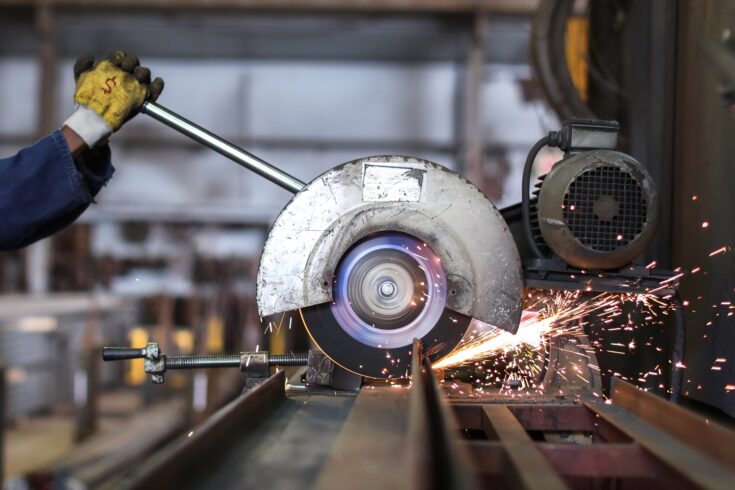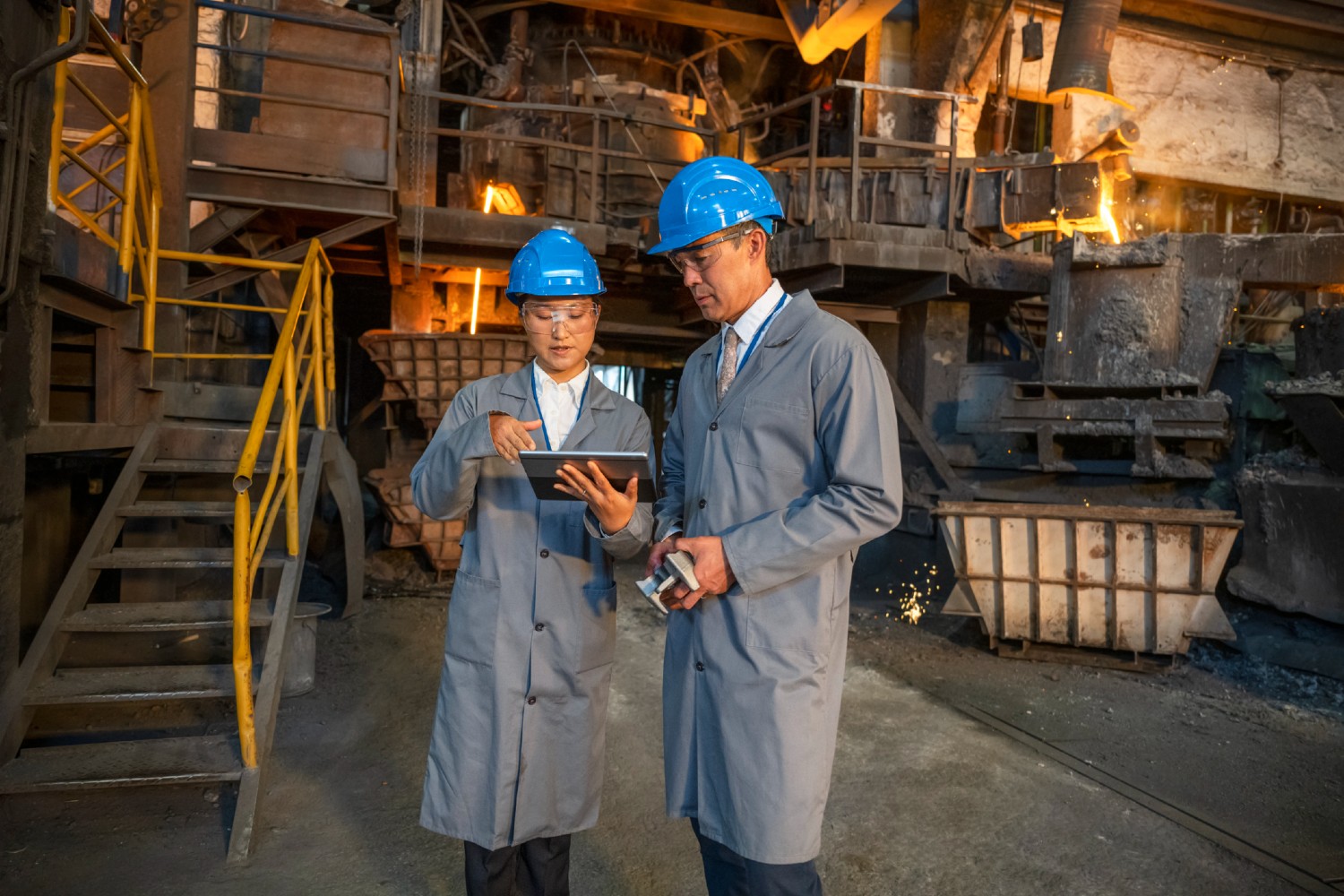The foundation industries, worth £52 billion to the UK economy, are vital to UK manufacturing and construction sectors. The foundation industries include:
- metals
- glass
- paper
- ceramics
- cement
- bulk chemicals.
However, these six industries contribute approximately 10% of our carbon emissions, which cannot continue as societal and political pressure moves us to a low carbon economy.
Transforming foundation industries
The transforming foundation industries challenge was launched in 2018, as part of the government’s Industrial Strategy Challenge Fund.
The challenge aims to accelerate the development of such innovations across the boundaries of these sectors. By working across sector boundaries, collaborative research and development:
- spreads economic risk
- enables larger projects to be built
- widens the pool of contributing expertise.
Cross-sector innovation
Heat recovery and waste utilisation are prime examples where cross-sector innovation may yield greater benefits.
Both areas require a systems approach to energy efficiency, looking at where these processes lose energy to the surroundings. Both within the factory walls and out into the supply chain as both heat and physical wastes, where by-products are not put to best use.
We funded a series of projects that explore heat recover and waste utilisation in the foundation industries.
Heat recovery
The concept of heat recovery seems simple on the surface: how can we capture and utilise heat that is wasted in the process?

Credit: dusanpetkovic, Getty Images
There is a lot that the foundation industries can learn from other sectors.
Power generation already couples heat recovery technology with local district heating networks. Food and drink capture and utilise low grade waste heat in compact spaces. And the oil and gas industry recovers higher grade heat for use in residential and commercial spaces.
The challenge for technology developers is to create:
- economic solutions
- more efficient high temperature heat recovery systems
- systems that capture more disperse and lower grade heat, and generate useful outputs.
Funded consortiums
Heat recovery best practice
We funded a consortium led by the Materials Processing Institute to develop guides for best practice in heat recovery, with expertise from the steel and ceramics sectors. The output of the work will lead to a roadmap for innovation options for solving this issue.
Power generation system
Separately, we funded a consortium led by Celsa Manufacturing Ltd that is developing a new power generation system for energy conversion from waste heat.
Current heat recovery systems have efficiencies below 15%. One of the reasons for the low efficiency is the temperature difference between the waste heat and the fluid in the heat exchanger system.
By changing the fluid, the efficiency could be double that of the current state-of-the-art system. This may increase efficiency of the system and reduce the cost of the generated power, making it more commercially attractive.
Improving customer experience
The challenge is not solely in developing technology but also about successful deployment.
In another project, we are working with JJ Bioenergy, which is aiming to increase uptake in heat recovery by improving the customer experience. It will develop a software as a service platform that will combine process engineering modelling and heat recovery technology expertise.
This will allow plant managers in the foundation industry to:
- calculate the potential of heat recovery options
- compare different technologies specifically for their plant
- connect to suppliers.
Waste utilisation
A large number of by-products are generated by the foundation industry processes, which go to landfill or are used in low value agricultural processes.

Credit: Petri Oeschger, Getty Images
However, these are rich in minerals and can often substitute virgin raw materials in other manufacturing processes. This is currently prevented by a lack of awareness of the types and volumes being produced, as well as transportation costs of dilute solutions.
Funded consortiums
Circular economy
One of our projects brings together a large consortium from across South Wales, led by Environmental Resources Management Ltd.
A study from the Waste and Resources Action Programme showed that transitioning to a circular economy model in the region could lead to cost savings of up to £2 billion a year. As well as reducing the dependency upon raw materials and increasing energy efficiency.
It brings together paper mills, steel plants, cement, and chemical producers to share data.
Together, an action plan is being developed for innovation between the local supply chains to achieve waste utilisation with mutual economic and environmental benefits.
Innovative projects
Other innovative research projects include:
- a techno-economic assessment of the incorporation of foundation industry waste streams into existing products and processes
- the use of paper sludges and lignin sulphates generated in the paper production process to be used in construction boards
- the use of by-products from the glass production process being used to modify steel slag, allowing it to be used as an alternative to aggregate in the surface layer of tarmac.

Credit: simonkr, Getty Images
Reducing environmental impact
These innovations reduce the environmental impact of the industries, as well as driving competitiveness. These are two factors key for the future survival of these industries vital to UK manufacturing and construction sectors.
For more information, visit the KTN foundation industries website to read our latest news and sign up for updates.
The transforming foundation industries challenge is delivered by Innovate UK.
Top image: Credit: Rangsarit Chaiyakun, Getty Images




